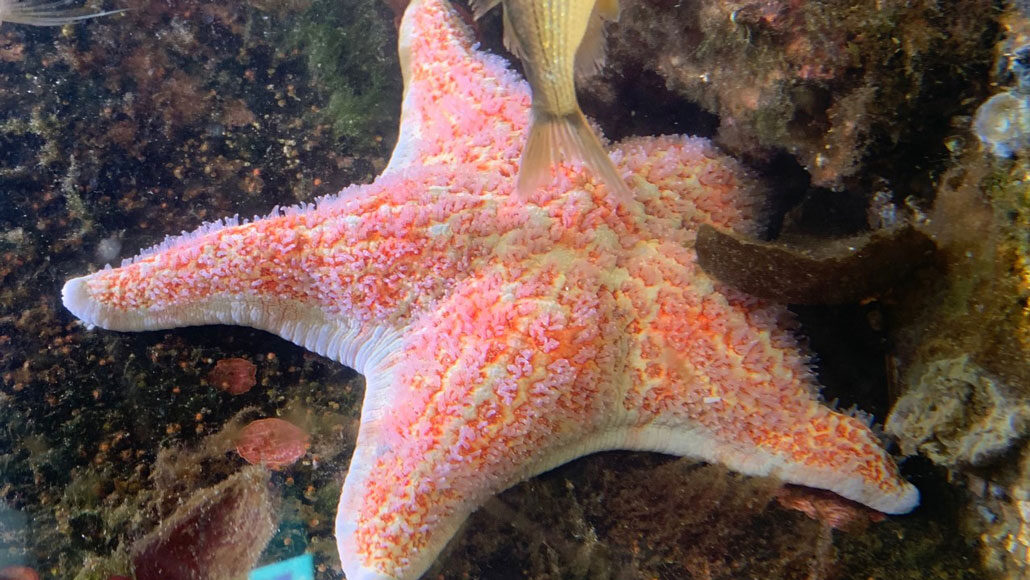Questions for “Choked by bacteria, some starfish are turning to goo”

Starfish can develop wasting disease, such as this leather star (Dermasterias imbricata) did, seen at the Sitka Sound Science Center in Alaska. Affected sea stars can dissolve into a puddle of goo.
Ian Hewson